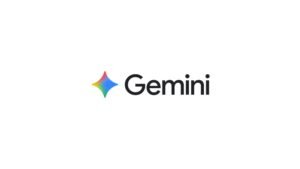In today’s digital age, website security is crucial. Secure web hosting solutions are a must.
Websites face constant threats from hackers and malware. Without proper security, sensitive data can be exposed. Secure web hosting ensures your site’s data remains protected. It offers peace of mind for both you and your visitors. With various options available, selecting the right one can be overwhelming.
This blog will guide you through the key features of secure web hosting. Learn how to safeguard your site and maintain trust with your audience. Discover the best solutions to keep your online presence safe. Stay tuned to make informed decisions and enhance your website’s security.

Credit: www.designinc.co.uk
Importance Of Secure Web Hosting
The Importance of Secure Web Hosting cannot be overstated. A secure web hosting solution protects your website from cyber threats, ensures data integrity, and maintains your site’s performance. In today’s digital landscape, security is not just a feature; it is a necessity. A secure hosting environment safeguards both your business and your customers’ trust.
Impact On Business
Secure web hosting has a direct impact on your business. A secure website builds trust with your audience. Visitors feel safe when they know their data is protected. Trust leads to higher engagement and better conversion rates. On the other hand, a security breach can damage your reputation. Customers may leave and never return.
| Positive Impact | Negative Impact |
|---|---|
| Increased Trust | Damage to Reputation |
| Higher Conversion Rates | Loss of Customers |
| Data Integrity | Legal Issues |
Protecting User Data
One of the primary roles of secure web hosting is protecting user data. Users share sensitive information on websites. This could be personal details, payment information, or login credentials. Protecting this data is crucial. Data breaches can lead to identity theft and financial loss.
- Encryption: Secure web hosting uses encryption to protect data during transmission.
- Firewalls: Firewalls block unauthorized access to your website.
- Regular Backups: Regular backups ensure data is not lost in case of a security breach.
Ensuring the security of user data is a responsibility. It helps maintain trust and protects your business from legal consequences.
Types Of Secure Web Hosting
Choosing the right web hosting solution is crucial for securing your website. There are different types of secure web hosting to consider. Each type offers unique features and benefits. Understanding these options helps you make an informed decision.
Shared Hosting
Shared hosting is a popular choice for beginners. It is cost-effective and easy to manage. Multiple websites share the same server resources. This can lead to slower performance during peak times. Security measures are in place, but risks are higher due to shared resources. Ideal for small websites or blogs.
Vps Hosting
VPS stands for Virtual Private Server. It offers more control and resources than shared hosting. Websites are hosted on a virtual partition of a physical server. Each partition acts as an independent server. Better security and performance compared to shared hosting. Suitable for growing websites with moderate traffic.
Dedicated Hosting
Dedicated hosting provides an entire server for your website. No sharing of resources with other websites. This results in higher performance and enhanced security. You have full control over server configurations. Best suited for large websites with high traffic volumes. It is more expensive but offers superior reliability.
Cloud Hosting
Cloud hosting uses a network of servers to host websites. This ensures high availability and scalability. Resources are allocated as per demand. Enhanced security measures protect data across multiple servers. Suitable for websites with fluctuating traffic. Offers flexibility and robust performance.
Key Security Features
When it comes to secure web hosting solutions, key security features play a vital role. They ensure that your website remains safe from cyber threats. Let’s explore some essential security features.
Ssl Certificates
SSL Certificates encrypt the data exchanged between your website and its visitors. This prevents hackers from intercepting sensitive information. With SSL, your website gains credibility. Visitors feel safe entering their details. Search engines also favor websites with SSL certificates.
Firewalls
Firewalls act as a barrier between your server and potential threats. They filter incoming traffic and block malicious requests. Firewalls help in keeping your website safe from unauthorized access. They also protect against malware and other cyber threats.
Ddos Protection
DDoS Protection shields your website from distributed denial-of-service attacks. These attacks flood your server with traffic, causing it to crash. With DDoS protection, your website remains accessible even during an attack. It ensures continuous uptime and smooth user experience.
Regular Backups
Regular Backups are crucial for data protection. They help you recover your website in case of data loss or cyber attack. By having backups, you can restore your website to its previous state. This minimizes downtime and potential revenue loss.

Credit: www.americaneagle.com
Choosing The Right Provider
Choosing the right provider for secure web hosting solutions is crucial. Your website’s security, performance, and scalability depend on this decision. Here are some key factors to consider:
Reputation And Reviews
Check the provider’s reputation. Look for customer reviews and ratings. Positive feedback from other users can give you confidence. Avoid providers with many negative reviews. A good reputation often means reliable service.
Customer Support
Good customer support is essential. Ensure the provider offers 24/7 support. You may encounter issues at any time. Support should be available via multiple channels, like phone, chat, and email. Fast and helpful responses can save you a lot of trouble.
Scalability Options
As your website grows, you will need more resources. Choose a provider that offers scalability options. They should allow easy upgrades to higher plans. Check if they provide flexible resources and pricing. This will help you manage costs and ensure your site runs smoothly.
Best Practices For Secure Hosting
Secure web hosting is critical for protecting your website and data. Implementing best practices can help you safeguard your online presence. Here are some essential practices to ensure your hosting is secure.
Regular Software Updates
Keep your software up to date. Regular updates address security vulnerabilities. Outdated software can be an easy target for hackers. Ensure your CMS, plugins, and server software are always current.
Strong Password Policies
Use strong passwords to protect your accounts. A strong password has at least 12 characters. It includes letters, numbers, and symbols. Avoid common words or easily guessed phrases. Change passwords regularly and never reuse them.
Monitoring And Logging
Monitor your server for unusual activity. Logging helps you track access and changes. Review logs regularly to spot suspicious actions. Set up alerts for specific events. This helps you respond quickly to potential threats.

Credit: www.linkedin.com
Common Security Threats
Understanding common security threats is vital for maintaining a secure web hosting environment. These threats can cause significant damage to your website and data. Let’s explore some of the most frequent threats you may face.
Malware Attacks
Malware attacks are one of the most common security threats. Malware can include viruses, worms, Trojans, and spyware. These malicious programs can steal sensitive data, corrupt files, and compromise your site’s performance. Preventing malware involves regular updates and security scans.
Phishing Scams
Phishing scams trick users into providing personal information. This can include passwords, credit card numbers, and other sensitive data. Scammers often use fake emails or websites that look legitimate. Education and awareness are key to preventing phishing scams. Always verify the source before sharing any information.
Brute Force Attacks
Brute force attacks involve hackers trying multiple password combinations to gain access. This method can be time-consuming but is often successful if weak passwords are used. Strong passwords and two-factor authentication can help protect against these attacks.
Cost Vs. Security
Choosing the right web hosting solution involves balancing cost and security. While budget is crucial, security cannot be ignored. This section explores how to find that balance.
Budget Considerations
Web hosting costs vary widely. Free or low-cost options are tempting, but they come with risks. Here’s what to consider:
- Free hosting often lacks robust security measures.
- Cheaper plans may have limited support and fewer security features.
- Shared hosting can expose your site to vulnerabilities from other users.
In essence, cheaper options can save money initially. But they may cost more in the long run due to security breaches or downtime.
Investing In Security
Spending more on secure hosting is an investment in your site’s future. Here are the benefits of investing in security:
- Enhanced Protection: Advanced security features like SSL certificates and DDoS protection.
- Regular Backups: Ensures your data is safe and recoverable.
- Better Support: Access to a dedicated support team for quick resolution of issues.
| Feature | Basic Plan | Secure Plan |
|---|---|---|
| SSL Certificate | No | Yes |
| DDoS Protection | No | Yes |
| Regular Backups | Manual | Automated |
| Support | Limited | 24/7 |
In summary, investing in secure hosting can save you from potential losses. It ensures your site remains safe and reliable for users.
Future Of Secure Web Hosting
The future of secure web hosting is rapidly evolving. As more businesses move online, the need for robust security measures grows. This shift requires hosting providers to stay ahead of emerging threats. They must also adopt cutting-edge technologies to ensure data protection and privacy.
Emerging Technologies
New technologies are shaping the future of secure web hosting. Cloud computing offers scalable and flexible solutions. Blockchain technology promises tamper-proof data storage. Artificial Intelligence (AI) helps in identifying and mitigating threats.
| Technology | Benefits |
|---|---|
| Cloud Computing | Scalability, Flexibility, Cost-efficiency |
| Blockchain | Tamper-proof, Decentralized, Secure |
| Artificial Intelligence | Threat detection, Automated responses, Predictive analytics |
Cloud computing allows hosting services to scale resources based on demand. This means websites can handle traffic spikes without compromising security. Blockchain technology ensures data integrity and security through a decentralized ledger. AI helps in analyzing vast amounts of data to detect and respond to threats quickly.
Evolving Threats
As technology advances, so do cyber threats. Hackers use sophisticated tools to breach security defenses. Phishing attacks, malware, and DDoS attacks are becoming more common and complex.
- Phishing attacks trick users into revealing sensitive information.
- Malware infects systems, stealing or corrupting data.
- DDoS attacks overwhelm servers, causing downtime.
Web hosting providers must stay vigilant. They need to update their security protocols regularly. This includes using advanced firewalls, encryption, and intrusion detection systems. Training staff and educating users about safe practices is also crucial.
The future of secure web hosting lies in proactive measures. Implementing emerging technologies and staying ahead of evolving threats will ensure a safer internet for everyone.
Frequently Asked Questions
What Is Secure Web Hosting?
Secure web hosting ensures your website is protected against cyber threats. It includes features like SSL certificates, firewalls, and regular backups. These security measures help to protect sensitive data and maintain website uptime.
Why Is Ssl Important For Web Hosting?
SSL (Secure Socket Layer) encrypts data transferred between the user and your website. This ensures the protection of sensitive information, such as credit card details, from hackers. It also boosts your website’s SEO ranking.
How Do Firewalls Enhance Web Security?
Firewalls monitor incoming and outgoing traffic to block malicious activities. They serve as a barrier between your website and potential cyber threats. Firewalls help to prevent unauthorized access and data breaches.
Can Secure Hosting Improve Website Speed?
Yes, secure hosting can improve website speed. Optimized security features reduce the risk of cyber attacks, which can slow down your site. Additionally, reliable hosting services often include performance enhancements.
Conclusion
Secure web hosting solutions ensure your website stays safe and reliable. They offer strong protection against cyber threats. Quick support and regular updates keep everything running smoothly. Choosing the right hosting service builds trust with your visitors. It also improves your site’s performance.
A good host boosts your online presence and user experience. Invest in secure web hosting today for peace of mind. Your online success depends on it.







